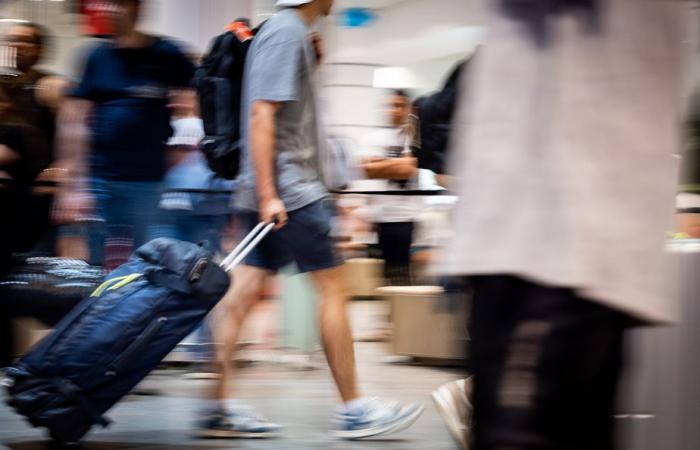Consumer representatives say proposed changes to the Air Passenger Protection Regulations will perpetuate loopholes that allow airlines to forego compensating travelers whose flights are disrupted.
Posted at 1:40 p.m.
Sammy Hudes
The Canadian Press
Ottawa proposes new rules regarding airlines' obligations when a flight is delayed or canceled by designating certain factors beyond a carrier's control, such as weather conditions that could affect flight safety, as “exceptional circumstances” .
Under the amended regulation, airlines are still generally not required to compensate passengers for inconvenience caused in situations involving such factors, although there are some exceptions.
The president of the independent volunteer organization Travelers' Rights (DV), Gabor Lukacs, called the announcement of the proposal over the weekend “misleading” and said Transport Canada is “effectively preserving the status quo.” .
He added that under the new rules, which are now open to a 75-day feedback period, about half of flight delays and more than two-thirds of cancellations would still not be eligible for compensation.
Previously, the Air Passenger Protection Regulation, which came into force in 2019, divided flight disruptions into three categories: those caused by factors within the carrier's control, disruptions within the carrier's control, but necessary for reasons security, and those beyond the control of the airline.
Passengers were only entitled to compensation in the first of these categories.
Mr. Lukacs stressed that the government's amended rules only give a new title to the last two categories. He called it “semantics.”
“They are just renaming the two categories when no compensation is due in ‘exceptional circumstances’,” he said.
“If two thirds of flight disruptions are exceptional, it is not very exceptional. This doesn't really do… what the government promised the public it would do. »
Closing a loophole
The Canadian Transportation Agency has been working to change regulations associated with the Canada Transportation Act since the Liberal government passed legislation last year to tighten rules around passenger rights.
The changes appear to close a loophole through which airlines deny their customers compensation for flight delays or cancellations when it is necessary for safety reasons.
The reforms also require airlines to prove that a flight disruption is caused by safety concerns or reasons beyond their control.
The draft regulations released Saturday would require carriers to provide meals to passengers whose flights are delayed at least two hours, as well as overnight accommodations if necessary, even in exceptional circumstances.
Ottawa clarified that these factors would also include security threats, unplanned airport closures, bird strikes or damage to aircraft that could affect flight safety, among other examples.
If a flight has been canceled or a passenger has been moved, the proposed changes require the air carrier to reschedule a passenger on its next available flight or that of a partner airline, also under all circumstances.
Airlines also have an obligation to reschedule a passenger who has missed or is likely to miss a connecting flight due to a previous disruption on the same route.
Reimbursements in shorter periods
Carriers should provide refunds within 15 days, instead of the current 30 days, if a passenger prefers to be refunded rather than rescheduled when their flight is canceled, delayed at least three hours or is excluded of the flight.
This change in calendar aims to better align with practices in force in the United States and the European Union, according to the federal agency.
However, Lukacs said those regions actually require carriers to issue refunds within seven days.
“Somehow the airlines managed to convince the government that miraculously, north of the border, apparently, the reindeer cannot make the reimbursement in seven days,” he quipped. Maybe the refunds arrive in a horse cart or something. »
The regulations include a maximum fine of $250,000 for airline violations, a ten-fold increase over existing penalties.
The federal agency estimates the proposed amendments would cost carriers about 99 cents per passenger flight per year, or about $512 million over a 10-year period after they take effect.






